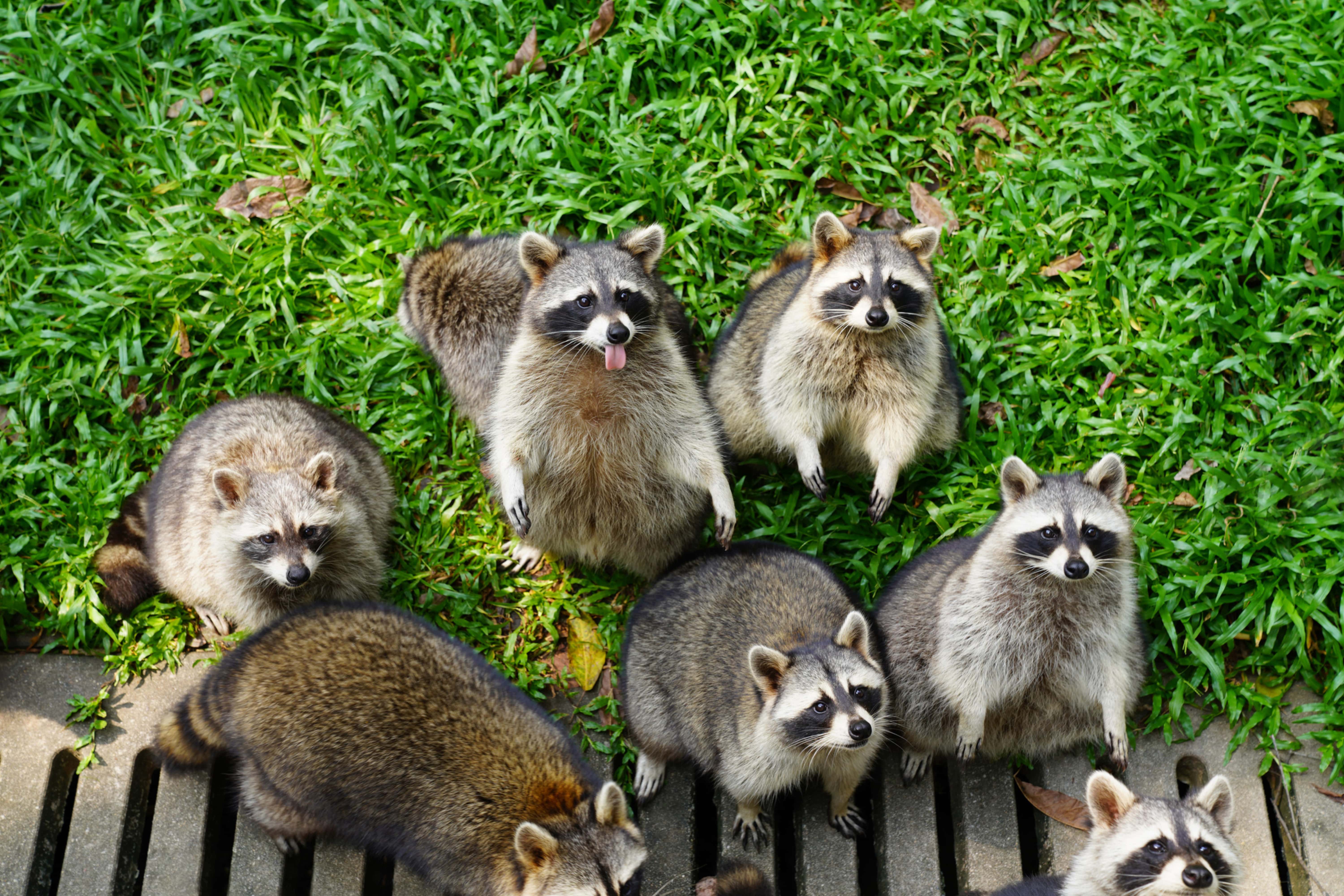We’ve all experienced it — stepping out into our backyard or peeking out the window only to see a pair of mischievous eyes staring back. Yes, raccoons! They might be cute, but raccoons can be a nuisance and even potentially harmful to our gardens or pets. The question is, why are they in our backyards in the first place? Is it our doing, or are other factors at play?
This article dives deep into the top ten reasons that might be drawing these striped visitors to your personal green space.
Raccoons, like all wild animals, have specific needs and behaviors that guide their decisions on where to hang out. Sometimes, our habits, combined with natural factors, make our backyards the equivalent of a five-star hotel for them. Let’s uncover these reasons so you can take back control of your garden.
1. Food Glorious Food
- Leftovers: Nature’s Buffet. You might not be directly feeding the raccoons, but they might be feeding off of you nonetheless! The main reason these critters venture into our space is food.
- Trash Cans: These are the primary culprits. An unsecured trash can is like an open invitation for a feast. Research shows that urban raccoons have a thing for human food waste.
- Pet Food: If you have pets and feed them outside, you’re inadvertently setting up a raccoon picnic.
- Fallen Fruits: Fruit trees are wonderful, but fallen fruits are raccoon magnets.
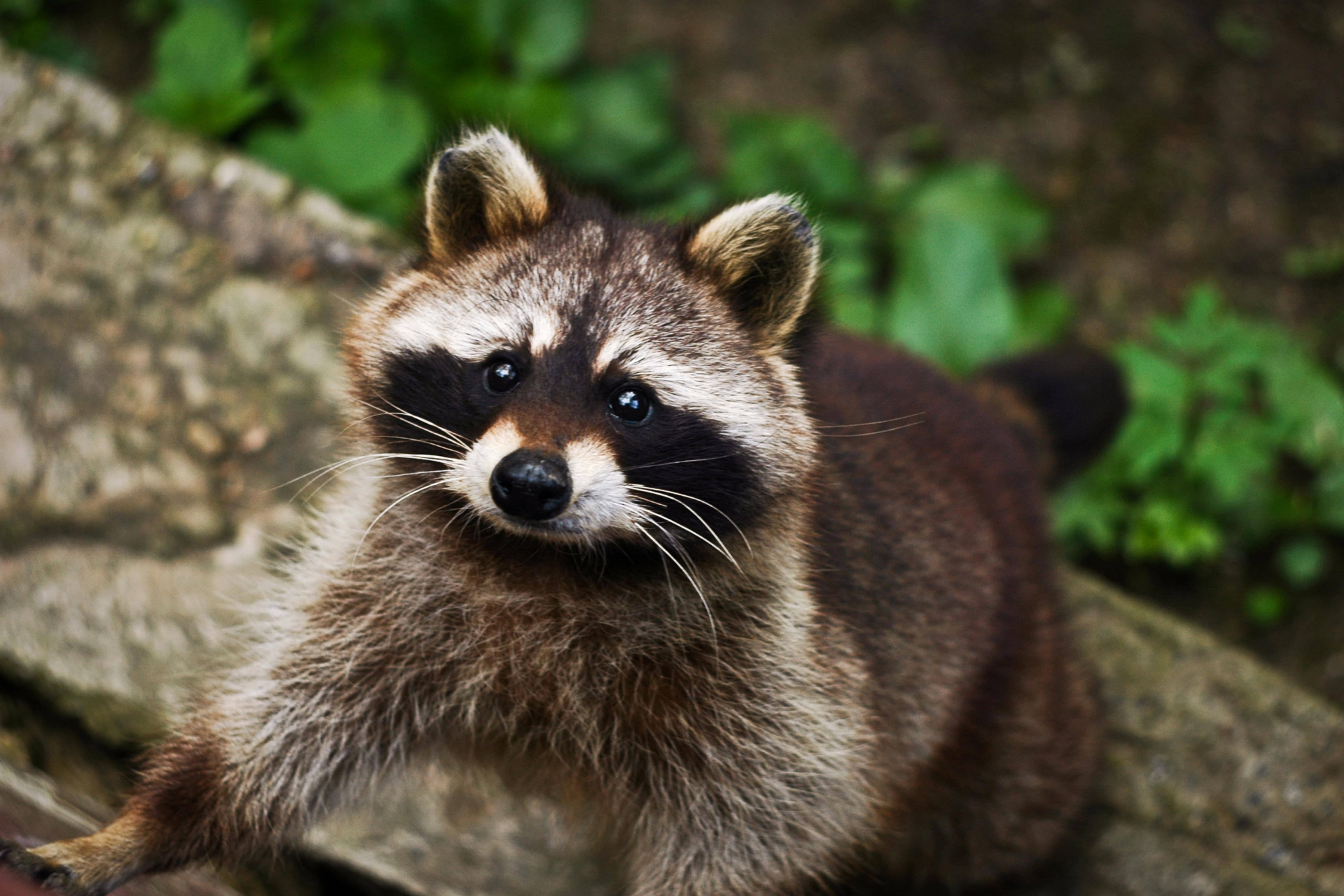
2. Seeking Shelter
Every Critter Needs a Home:
- Natural habitats are shrinking, and animals are looking for cozy places to crash. Your backyard might be the new prime real estate.
- Wood Piles: These make for excellent raccoon hideouts.
- Abandoned Sheds: Old, unused sheds offer a sheltered spot, safe from predators.
- Dense Vegetation: Overgrown parts of gardens provide a natural refuge. Studies confirm urban green spots are raccoon favorites.
3. Water Sources
The Perfect Drink Station:
- Just as with food, raccoons need water to survive, and your backyard could be the perfect hydration station.
- Bird Baths: Not just for the birds, it seems.
- Puddles: Even small, temporary puddles after the rain can attract them.
- Garden Ponds: Especially if they’re teeming with fish.
Comparison of Causes
[table id=433 /]
4. Mating Season Adventures
Love is in the Air
- Come spring, young raccoons venture out looking for mates. Your backyard might be the hotspot for raccoon romances.
- Tree Hollows: Perfect spots for nests.
- Quiet Corners: For those intimate raccoon moments.
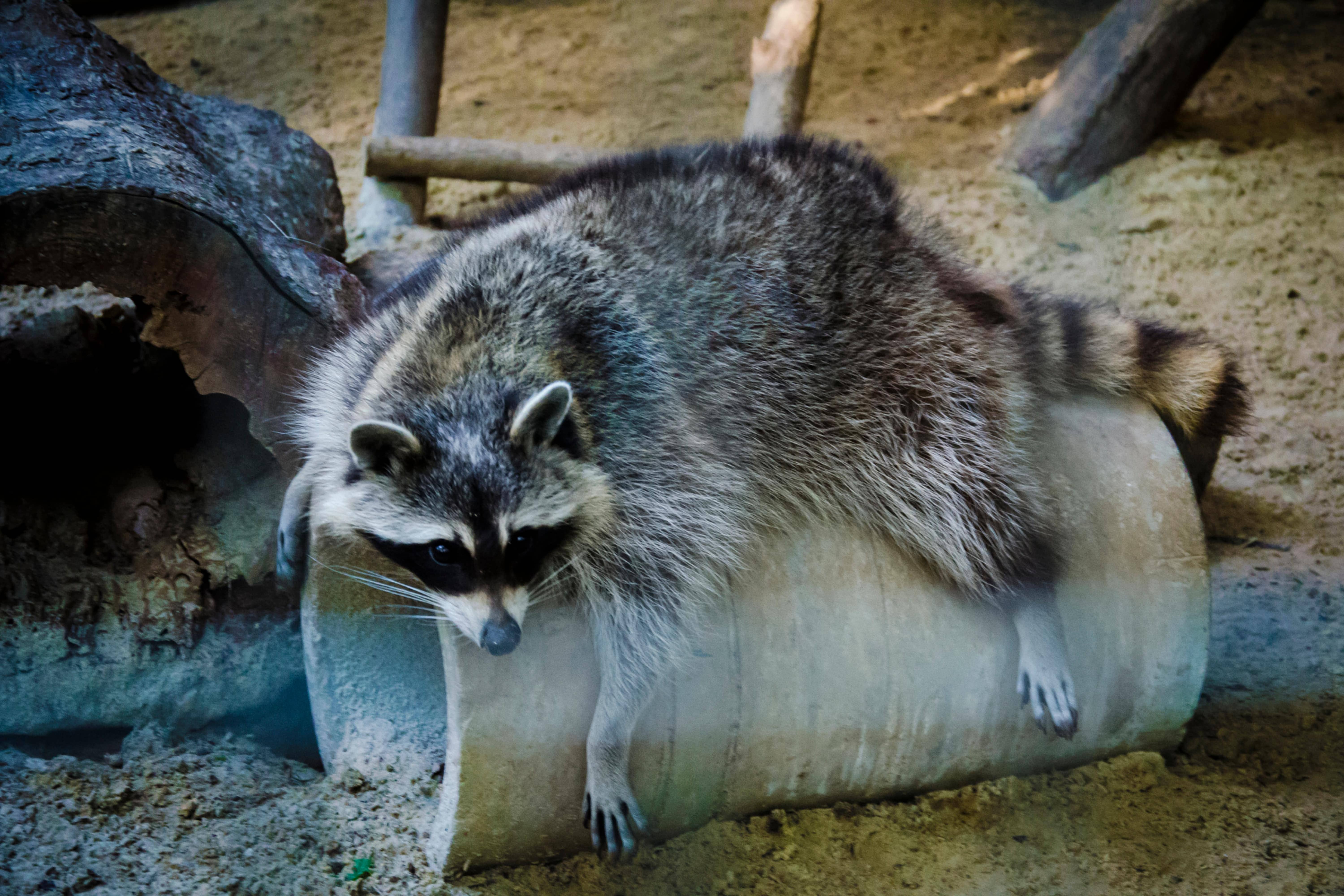
5. Natural Curiosity
The Explorer Instinct
- Raccoons are naturally curious animals. Sometimes, the sheer adventure of exploring new territories is a pull in itself.
- Garden Decor: Yes, they might just be interested in that gnome
- New Plantings: Freshly dug soil is irresistible for a dig-around.
6. Ease of Entry
Open Borders
- How accessible is your garden? High fences and secure gates might deter them, but easy entries are welcoming.
- Broken Fences: An open invite.
- Overhanging Trees: Nature’s bridge to your backyard.
7. Lack of Predators
Safe Havens
- Areas that lack natural predators, like coyotes or large birds of prey, become safe havens for raccoons.
- Urban Environments: The concrete jungle is safer than the real one.
- Isolated Gardens: Less traffic, more appeal.
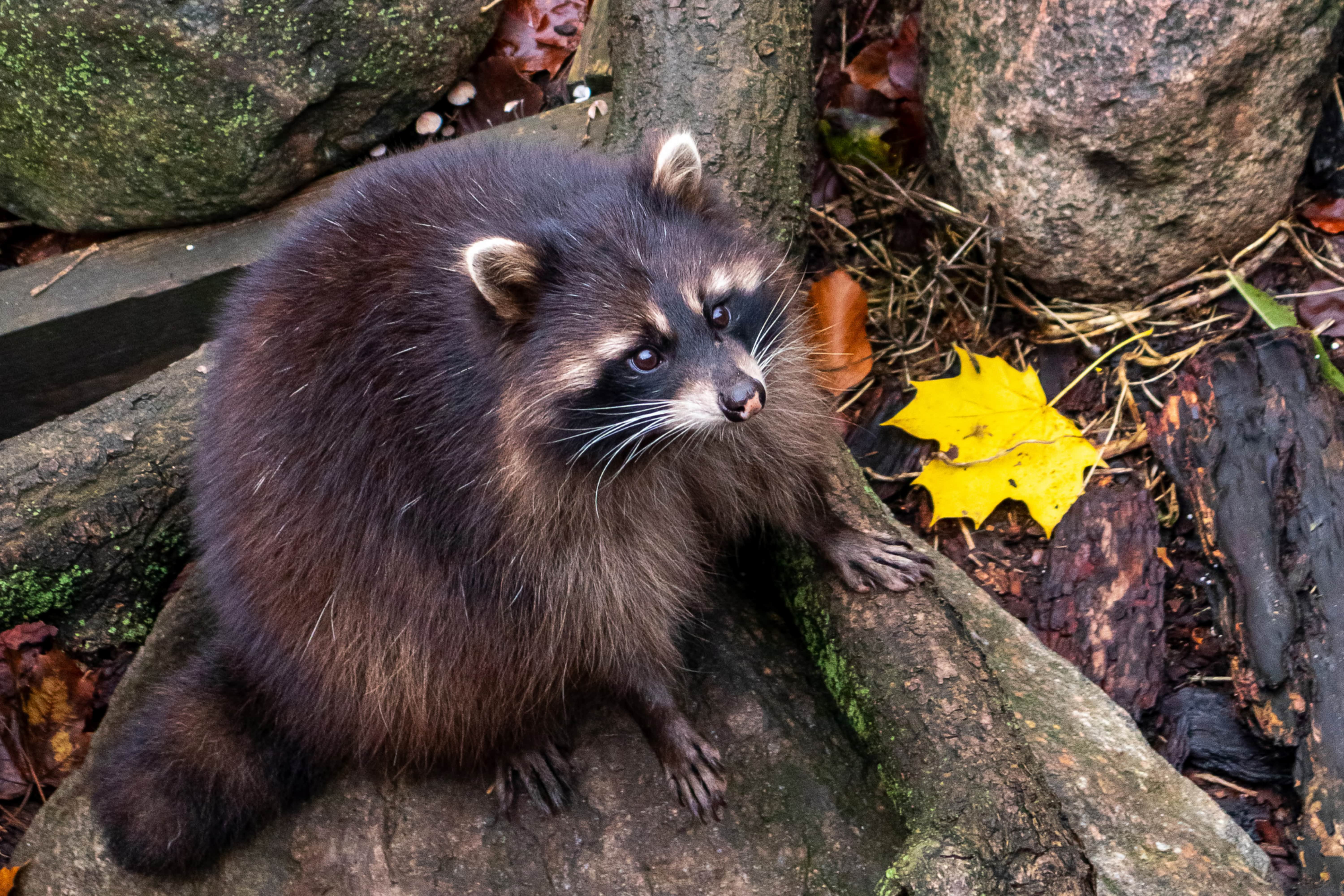
8. Light Pollution
Bright Nights
- Believe it or not, studies have shown that raccoons actually prefer areas with light pollution. They feel safer when they can see.
- Garden Lights: Pretty for us, helpful for them.
- Streetlights: Your local council might inadvertently be inviting raccoons.
9. Human Interaction
Not So Scary Humans
- If raccoons have had positive interactions with humans, they’re more likely to venture closer.
- Feeding: Even if it’s unintentional.
- No Scare Tactics: If they’re not scared away, they’ll return.
10. Peer Pressure
Everyone’s Doing It
- Raccoons are social animals. If one finds a great spot, others might follow.
- Scents: They leave behind a trail for others to follow.
- Calls: Yes, they communicate about the good spots!
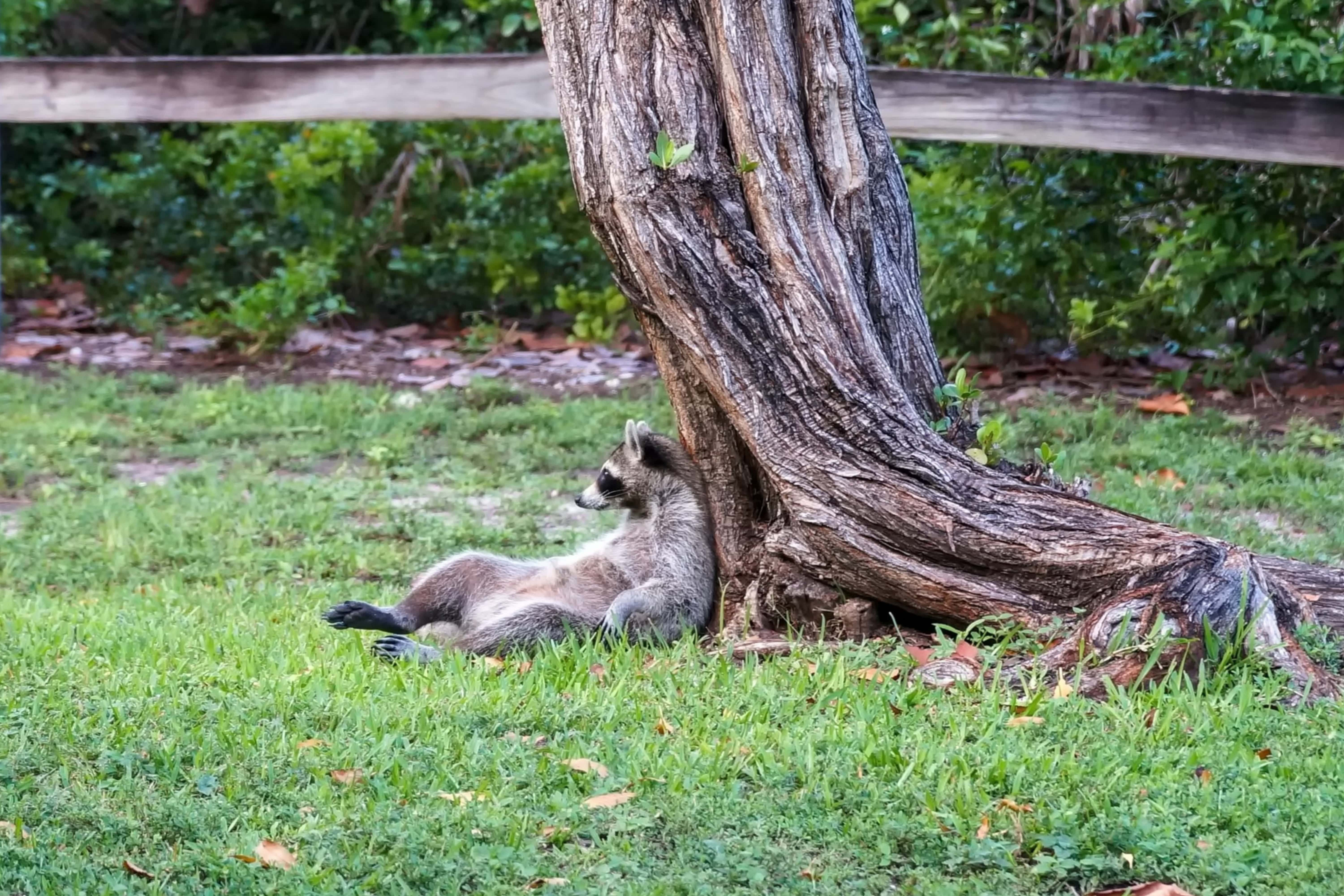
The Hidden Dangers of Raccoons: People, Pets, and Plants Beware
Raccoons, with their distinct masked faces and bushy tails, have earned a reputation for being mischievous and intelligent. While they often feature in our pop culture as adorable and harmless creatures, they can pose a variety of risks. From personal health threats to the safety of pets and the well-being of plants, raccoons can be more dangerous than they appear.
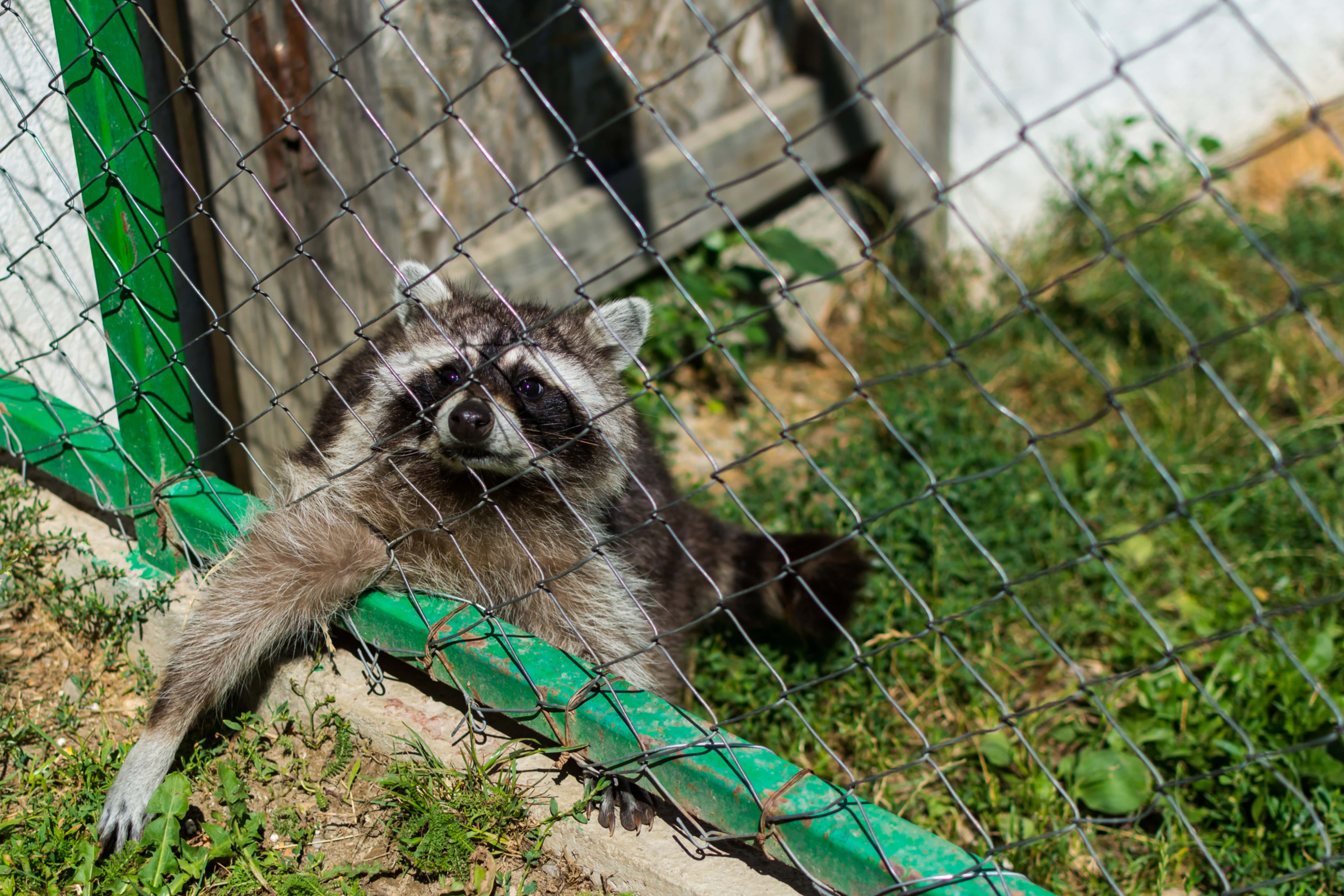
1. Threats to Humans
Rabies and Zoonotic Diseases:
One of the foremost concerns with raccoons is the potential transmission of rabies. This viral disease affects the central nervous system and can be fatal if not treated immediately after exposure. Raccoons are one of the primary carriers in many parts of North America. Additionally, raccoons can carry other zoonotic diseases, meaning they can transfer these diseases to humans.
One such disease is the raccoon roundworm, which can cause serious health issues if ingested, especially in children.
Aggression:
While raccoons are generally wary of humans, they can become aggressive when cornered or when protecting their young. An aggressive raccoon may scratch or bite, leading to potential infections.
2. Dangers to Pets
Attacks and Injuries:
Cats, small dogs, and other pets might see raccoons as playmates or threats, leading to potentially dangerous encounters. Raccoons have sharp claws and teeth, and they won’t hesitate to use them if they feel threatened or cornered. Such interactions can lead to serious injuries for pets.
Disease Transmission:
Apart from humans, pets are also at risk of contracting diseases from raccoons. Rabies, once again, tops the list. Furthermore, raccoons can introduce fleas and other parasites to your pets.
3. Plant and Property Damage
Garden Havoc:
Raccoons are omnivorous and have a varied diet. Vegetables, fruits, and plants in your garden can quickly become their favorite snack. Corn, berries, and fruit trees are particularly at risk. Raccoons have been known to strip corn stalks bare and dig up gardens in search of tasty morsels.
Structural Damage:
Their search for food and shelter can lead raccoons to exploit vulnerabilities in homes and other structures. They might tear off shingles, exploit holes in attics, or damage vents to gain access. Once inside, they can cause insulation damage, leave droppings, or even tear up stored items.
When are Raccoons Most Dangerous?
While raccoons can be a concern throughout the year, their potential danger spikes during specific seasons:
Spring – Mating Season:
During the spring, raccoons are on the move, searching for mates and establishing territories. This increased activity can lead to more frequent human and pet interactions. Moreover, female raccoons may become more aggressive if they perceive any threat to their newborn kits.
Fall – Preparing for Winter:
As the cold sets in, raccoons are on a mission to accumulate body fat. This makes them more persistent in their search for food, increasing the chances of them invading homes and gardens. It’s also when they seek out warm places to nest, which might include attics or basements.
In conclusion, while raccoons might captivate us with their clever antics and cute faces, it’s essential to recognize the potential threats they bring. Whether it’s the risk of disease, aggression towards pets, or the havoc they wreak on gardens and structures, a proactive approach can prevent unwanted encounters and keep homes and gardens safe.
By understanding the peak times of raccoon activity and their inherent risks, homeowners can take steps to ensure a harmonious coexistence with these wild neighbors.
Guarding the Green: How to Protect Your Garden and Yard from Raccoons
Raccoons may look charming, but as we’ve established, they can be a real nuisance, not to mention a threat to your garden, pets, and even your home. But fear not. There are plenty of strategies to keep these masked marauders at bay. From DIY solutions to understanding their behavior, here’s how to protect your outdoor spaces from raccoons.
1. Securing Trash Cans
One of the most effective ways to deter raccoons is by securing your trash cans. It sounds simple, but consider this. Your garbage is like a buffet for raccoons, full of enticing smells that attract them like a magnet. Here’s how to make your trash cans raccoon-proof:
- Lids: Opt for cans with locking lids or use bungee cords to secure the top.
- Weight: Place a heavy object on top of the lid to make it harder for raccoons to pry it open.
- Odor: Use ammonia or vinegar to mask the smell of food waste.
2. Modify the Environment
Raccoons are attracted to environments that offer shelter or hiding spots. By modifying your backyard, you can make it less appealing for them.
- Trim Trees: Raccoons use branches to climb into areas they shouldn’t. Keep tree limbs trimmed away from your home.
- Clear Debris: Remove piles of wood, clear overgrown bushes, and dispose of other debris that could serve as hiding spots.
3. Install Motion-Activated Sprinklers
These devices are a non-toxic and humane way to deter raccoons from entering your yard. They sense movement and spray a burst of water, startling raccoons and encouraging them to move on.
- Placement: Install the sprinklers near trash cans, garden beds, or any other area you want to protect.
- Sensitivity: Adjust the sensitivity settings according to the size of the area you’re protecting.
4. Use Raccoon Repellents
Chemical or natural repellents can deter raccoons without harming them.
- Commercial Repellents: These are available in spray form and can be applied around the perimeters of your garden and near potential entry points.
- Homemade Repellents: Hot pepper spray made from mixing water with a small amount of cayenne pepper can be equally effective.
5. Fencing and Barriers
Effective fencing can prevent raccoons from entering your garden in the first place.
- Height and Depth: A fence should be at least 4 feet high and have a portion buried underground to prevent digging.
- Electric Fences: These provide an added level of protection and give raccoons a quick but harmless shock, deterring them from climbing over.
Lifehacks to Keep Raccoons Away
- Pet Food: Never leave pet food outdoors. Raccoons will see this as an easy meal.
- Noise Deterrents: A radio left on a talk station can create the impression of human activity, scaring off raccoons.
- Bright Lights: Use motion-activated lights to startle and deter raccoons.
- Odor Barriers: Soak rags in ammonia or apple cider vinegar and place them near entry points.
- Spice It Up: Sprinkle cayenne pepper or chili powder around your garden beds. The strong smell and taste are unpleasant to raccoons.
- Netting: Use netting to protect fruit trees, berry bushes, and vegetable gardens.
Each of these lifehacks focuses on either removing the attractants or creating an environment that is unfriendly to raccoons. Most importantly, these measures are humane and aim to achieve a balanced coexistence with wildlife.
The key is to be consistent and observant; raccoons are clever creatures, and they will find loopholes if you’re not careful. With these strategies in place, you’ll be well on your way to reclaiming your garden and enjoying your outdoor space in peace.
Conclusion
Your backyard is more than just a space; it’s an ecosystem. Recognizing the factors that attract raccoons can empower you to make changes and reclaim your garden. While raccoons are an essential part of nature, understanding their habits and motivations can create a harmonious coexistence between man and wildlife.
So next time you spot those cheeky eyes, you’ll know exactly why they chose your backyard for their escapades.
[wp-faq-schema title=”Frequently Asked Questions”]
